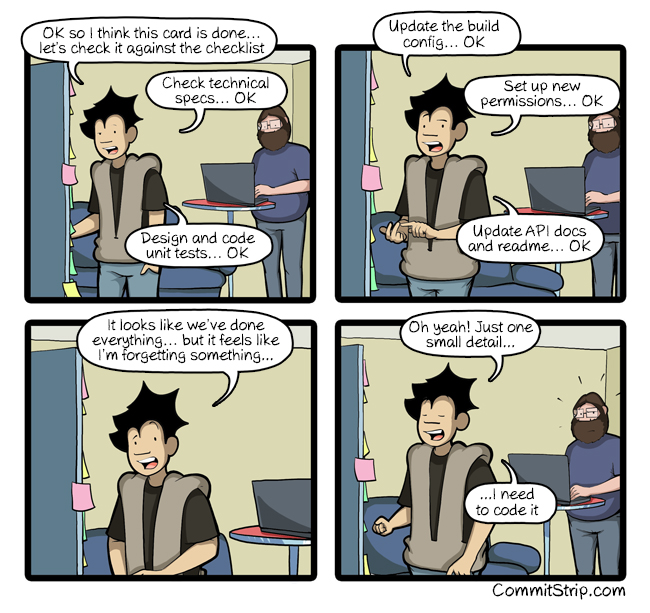I deal with passwords a lot. In any given day I log into five or six servers, another dozen web sites, plus my personal systems and tools. Some are stored in password managers, some are memorized, some are mine, and some are shared. To avoid losing things I need I have several patterns, schemes, and password generation tools I use to try to keep up with it all and make sure I’m using good passwords most of the time.
I don’t have a deep background in cryptography and a definitely don’t consider myself an expert in the related math. But I have spent a lot time time with users and observing behaviors, so I do consider myself reasonably knowledgeable about how people actually behave with their passwords.
A couple years ago this XKCD comic came out, and an admin’s view of it has become one of my measures of their understanding of users and passwords:

If you’re interested in understanding what technically right and wrong with the math and assumptions in that comic you might find some of the references on explain XKCD’s discussion interesting.
I don’t actually think that’s the interesting part. To me the interesting part is the number of system administrators I have talked to who are convinced the comic is wrong, because they are also convinced that anyone who doesn’t use truly random password and avoid password reuse is stupid and therefore their behavior can be ignored. These people have access to your system, and it’s your job to keep those system secure. The problem isn’t your users, the problem is we have made passwords unreasonably hard to do right.
At this point people generally know they are supposed to use good passwords, like we all know we’re supposed to brush after every meal. Sure there are people that do that, but not most of us. We all know that passwords should be long (even if we fight over the exact length to require) and use lots of different kinds of characters (although many password systems require them to be from the latin character set). But it’s too hard to follow all the rules, and security experts are so concerned about being right they don’t provide useful guidance about when the cheat.
Let me grant those who like long-random passwords the following point: if you use different passwords on every system that needs one, and they are all truly random strings, and you memorize them all so you don’t have them recorded someplace they could be stolen, you have the hardest for an attacker to crack. Great for you. But I work with people who are not perfect, have limited memories, and need to be able to have shared access on a regular basis.
Knowing the perfect random password generation pattern is useful in some cases (or so I’ve heard), but rarely are you in a case where you can use the perfect setup. I don’t care about perfect: I’m not perfect, I don’t work in a perfect office, have perfect colleagues, or perfect clients. So here are my good-enough rules for admins and developers.
0) Make it easier to do the right thing than the hard thing. This gets to be rule zero, because everything else is meant to support this idea. You want the path of least resistance to be the one that gets you the results that are secure enough to protect your systems from the attackers they face. Make sure your users have good tools for storing passwords, settings on password fields to encourage good (not perfect) behavior, and a minimum of stupid rules you don’t really understand but someone told you are “best practice”.
1) If you make it hard for people, they will find a way around you and likely weaken security. It might be post-it notes on monitors, cycles of passwords that are 5 long (because you force them to not use the last 4). If you make it hard to pick a password (because you required punctuation but not ‘, \, “, &, or !), you will end up with lots of passwords that are curse words – and your attacker will thank you for shrinking the search space. If they are using touch devices to type them, they will do things like repeat as many characters as you allow to make it easier to type (if you ban any repeats: again the attackers thank you for shrinking the search space). All things you want them to stop doing.
2) Do not have a maximum password length. Any time I hit a system with an upper bound of 12 I want to scream (although jokes about chimps might be a better tactic). Even if you are using a secure hashing system that ignores all characters after some point: who cares? Why limit the attacker’s search space to only strings between 8-12 characters?!? Sure that’s a massive search space, but not nearly as big as it could be.
3) Do have minimum lengths. Minimum lengths forces your users to do two things. First, not use passwords that could be broken in less time than it took you to read this article. Second, it gives you leverage to push them to either good phrases or generators. If you’re smart and don’t have legacy systems to support go with something like 15 or 20 characters.
4) Expect people to share passwords. Many times this is actually a basic job function. If I won the lottery tomorrow (unlikely since I don’t play) and don’t come to work (also unlikely since I would wait until I had the money reinvested before making plans) the person taking my place needs to be able to access all the tools, servers, and accounts I’ve setup. If she can’t do those basic things I haven’t done my job responsibly.
5) Provide secure means to share passwords. I have more than once been sent a password in chat (running through Google, Slack, or once upon a time AOL’s servers), email, word documents, text file, and a variety of other terrible solutions. This happens not because my colleagues didn’t know it was a bad thing to do but because they didn’t have a good option. We spend so much time locking down passwords, that we don’t create secure channels to hand them around responsibly which defeats the purpose of secured storage.
6) Pay attention to how users will be using individual passwords. Not all passwords are created equal, which is why I encourage you to support throw away passwords: something short, easy to remember, and only used places it doesn’t matter if it were stolen. But even when a password is important there are issues like the ease of entering them: if I have to enter a password 4 times a day it better be easy to type or I better be able to copy and paste it. If I need it once a month it should be impossible to remember and its okay if it takes me 5 minutes to get it right. Most of us can’t type complicated passwords quickly, and if we have to enter it a bunch we want to be fast. This is even more true for people using touch interfaces where shift is an extra keystroke as is changing to a different part of the standard keyboard.
7) Stop telling people they have to use a different password every time. This is an extension of number six. People have too many passwords, and that’s not changing soon. Sure we can encourage them to use LastPass, or a tool like it, but most people aren’t going to (and if they did that could be its own problem since it creates single points of failure). Tell them to use a different password when it’s important, and to use a throw away password or scheme when it’s not.
Not everything needs to be Fort Knox so stop pretending it is. Important things like your bank account(s), your email, Facebook need their own passwords because they can be used to do real damage in the real world. Online communities, games, and other trivial places asking you to sign in do not.
8) Don’t lecture people about bad personal password habits. Honestly, this is probably the hardest one (here I am lecturing you about not lecturing them). Usually the first people to admit they are sloppy about passwords are developers and sysadmins. Sure, they will tell you about the awesome password wallet they use first, and the two factor authentication they created for their blog, but then toss off that all their production servers have the same root password and it’s 8-10 nonrandom characters. Even if you are perfect (if you are still reading this by definition you probably have room for improvement) don’t lecture people who aren’t. It just makes them feel they can’t admit when something has gone wrong, or if they don’t understand something. When you find people doing it wrong, show them how easy it is to do it right, and if it isn’t apologize and fix it.






